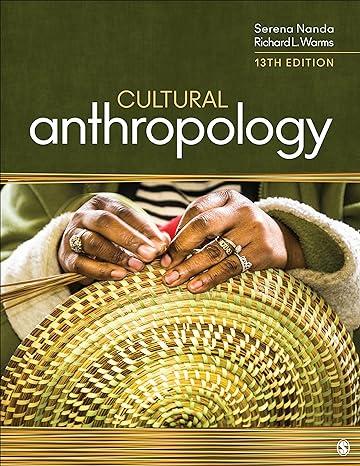How did the COVID-19 crisis affect you personally? In the United States, the effects of COVID-19 exposed
Question:
How did the COVID-19 crisis affect you personally?
In the United States, the effects of COVID-19 exposed racial and ethnic inequalities and, in some cases, exacerbated tensions. In the spring of 2020, African Americans bore a horrifying toll. In early April 2020, in Louisiana, African Americans made up 32\% of the population but 70\% of COVID-19 deaths. In Michigan, the death rate for African Americans was eight times the death rate for whites, and in Chicago, \(72 \%\) of the deaths were of African Americans, more than twice their percentage in the population (Thomas \& Anoruo, 2020). Between March 1, 2020, and January 8, 2022, COVID-19 hospitalization rates for African Americans were 2.5 times higher and death rates 1.7 times higher than for white non-Hispanic persons. The numbers for Native Americans were substantially worse (Centers for Disease Control and Prevention, 2022a). These appalling numbers reflect the structural vulnerabilities of the Black and Native American population, which is poorer, more likely to have health conditions such as hypertension or diabetes, and less likely to have high-quality health insurance than Americans in general. These problems were further heightened by the slow, inconsistent, and biased government response. An analysis of Philadelphia, for example, showed that in March and April 2020, testing for the disease was six times greater in wealthier ZIP codes than in poorer ones (Reid, 2020).
The virus increased ethnic tensions as well. Throughout 2020, President Trump repeatedly referred to COVID-19 as the "Chinese Virus," "Kung Flu," or the "China Virus." A well-reported incident shows him altering notes for a press briefing to replace COVID-19 with "Chinese." The Chinese government does bear some responsibility for ignoring early warning signs of the disease and failing to contain it adequately. This includes the government's silencing of Li Wenliang, a doctor who warned about the virus in December 2019 and later died of it (BBC News, 2020). However, naming diseases after locations or ethnic groups is solidly rejected by the medical community (WHO, 2015). Although no American official publicly attacked Chinese or Asian Americans, numerous Republicans followed Trump's lead in using the phrase "Chinese Virus" and criticizing Chinese culture (KXAN, 2020). Hate crimes and racist slurs against Asian Americans increased. Between March 2020 and September 30, 2021, Stop AAPI Hate, a national coalition that gathers data on racially motivated attacks related to the pandemic, reported more than 10,000 pandemic-related racially motivated attacks against people of Asian descent (Yellow Horse et al., 2021). San Francisco reported a more than \(500 \%\) increase in such crimes from the previous year (Associated Press, 2022).
As we write this in summer 2022, COVID-19 remains an existential threat to the way of life of people around the world. By the time you read these words, the situation will be different-maybe worse, but hopefully better. Combating COVID-19 could have showcased the best of humanity. Governments and people might have united in effective scientific and social action to control the disease. Instead, exacerbated by nationalist leaders in the United States, Europe, India, Brazil, and China, government responses have often been inadequate and sometimes shameful. Leaders have used COVID-19 to stoke division and outrage and to augment their own power. We hold out hope that this will change and that insights from anthropology and other fields can help us realize that, though we may not all be in this equally, we are indeed all in this together.
Step by Step Answer:






